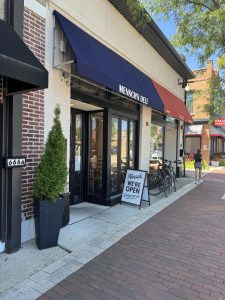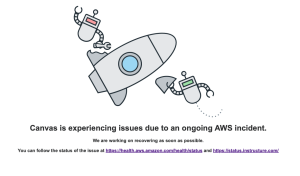Don’t go blocking my sites
November 6, 2015
Blocking social media is like blocking life. You can’t avoid it, and the harder you try, the more obvious its existence is.
In the past when Snapchat, Instagram, and Facebook were not blocked, I didn’t feel as much of an urgency to use them, because I knew they’d always be there.
In the past few weeks, sadly, these apps have been officially blocked off the school’s main wifi. RIP.
But now, it’s as if using these sources of social media is an act of rebellion.
I’m not addicted to Instagram; I’m not constantly on my phone checking my Facebook feed; I don’t Snapchat people every second of the day. What I am, though, is hyper-aware of the outburst around the usage of these apps at school.
When someone tells me I can’t have or do something, I’m instantly defensive.
I want to say things like, “I should be allowed to do what I want!” People are keen to the idea of wanting something they can’t have. We all know that cliche, yet annoyingly true saying: absence makes the heart grow fonder.
Relating this idea to the blocking of social media, (perhaps not so extreme), students feel like they have a right to use their means of social media. So, it’s understandably frustrating not having the immediate access to these apps we’ve always had .
What’s even more frustrating is the fact that the administration believes what they are doing will positively affect the student body.
Instead, it actually makes many people feel resentment towards the administration.
While it makes sense for these apps to be prohibited during class, it’s annoying not being able to use Snapchat during free periods and lunch periods.
In order to continue the use of Facebook, Instagram, and Snapchat, students have had to download certain apps that block their web addresses from the school wifi.
Therefore, the extra measures people have gone through just to achieve access for these apps have cancelled out the efforts made by the administration.
This is actually quite ironic. Blocking the three largest sources used for social media, in theory, could be a good idea. But what *cough cough* older generations don’t realize, is that so much of our time is spent on social media.
I don’t like to admit it to myself, but social media does have a strong influence on my own life, but looking at it with a more “un-biased” approach, it really does.
No matter the technological obstacle, teenagers will find a way over, under, or around it, if that means protecting their right to peruse Facebook or Instagram’s never ending feed.
My biggest problem with having these major apps blocked though, is that sometimes Facebook serves as an academic purpose.
If you need to reach someone and don’t have their number, it removes the ability to communicate with your peers in and outside of class.
Being aware that these social media apps are blocked creates a fear of missing out on things that are going on during school.
Students who have downloaded a means of protecting their web addresses from the school’s wifi have access to these apps, while the students who aren’t able to download the address-blocker are left out.
It causes an imbalance in the student body, generating a new kind of social outcast: an outcast of social media, or as we call it, life.












































